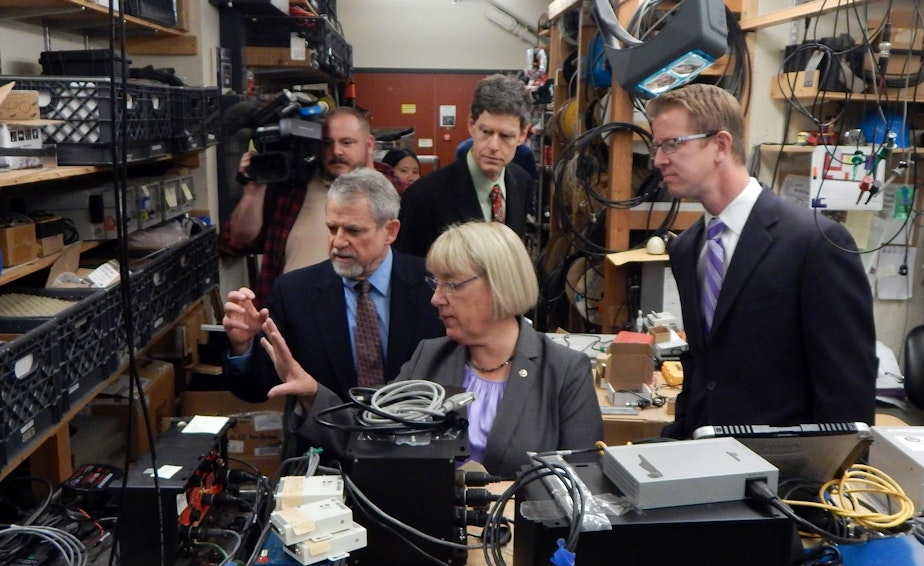Sen. Patty Murray says she’ll push for daylight saving time year-round

Sen. Patty Murray said she is committed to helping West Coast states get the congressional OK to adopt year-round daylight saving time.
This comes as Oregon, Washington and California state legislators move toward nixing the twice yearly time change.
During a visit to Olympia on Wednesday, Murray said she learned the Washington Legislature is likely to take final votes soon to make daylight saving time permanent. That moves the clock into her court.
"I had the chance to talk to both the [state] House and Senate here that it will pass here," Murray told the state capitol press corps. "Of course, it will take some federal action once it does. I am committed to working on that."
Here's why Congress needs to get involved: States can adopt year-round standard time, but the federal Uniform Time Act does not currently allow for year-round daylight saving time.
Oregon Senator Ron Wyden recently signed on as a co-sponsor to a Florida senator's bill to make daylight saving time permanent nationwide in one fell swoop in every state that observes it. A separate U.S. House measure introduced this month from Utah Congressman Rob Bishop would simply give states the option to observe daylight saving time year-round.
Sponsored
"I think it's great if our state moved forward on it. If other states want to go, that's great," Murray said. "Trying to pass national legislation on this would probably be an impediment for our ability to getting it done."
Murray spoke in Olympia on the same morning as a state Senate committee hearing on the current proposal to make daylight saving time permanent in Washington state. The measure under consideration passed the state House of Representatives earlier this month on an 89-7 vote.
"If you look at what is going on in our time zone, it is really part of a movement," the measure's sponsor, Democratic state Rep. Marcus Riccelli, told the Senate panel. "I think it's time. This is an archaic deal. Switching the clocks is not necessary."
Seth Dawson, a lobbyist for the Washington State Psychiatric Association, questioned the wisdom of extending daylight saving time year-round. In his testimony Wednesday, Dawson claimed there is conflicting evidence about the health benefits. He said exposure to bright morning light keeps biological clocks in sync. Dawson pointed out that sunrise would be close to 9 o'clock in the morning in Seattle in December if daylight saving time were observed year-round.
The Washington House and Senate still need to work out whether the time change proposal would be sent to the statewide ballot in a referendum next November. The two chambers have come down on opposite sides on that detail.
Sponsored
Several measures to abolish the tradition of springing forward and falling back are currently pending in the Oregon Legislature too. A state Senate committee heard testimony last week on a proposal from Republican state Sen. Kim Thatcher that would switch Oregon to permanent daylight saving time in 2021 provided the voters approve in a statewide referendum beforehand. Thatcher's legislative spokesperson said she is discussing several tweaks to her measure with other senators before passing it out of committee next week.
The leader of British Columbia sent letters this month to the governors of Oregon, Washington and California to flag his province's interest in coordinating uniform time observation. Premier John Horgan suggested it would make sense for all of the West Coast jurisdictions to move in unison.




